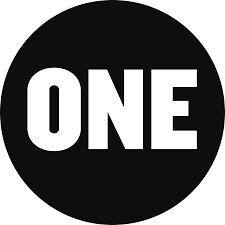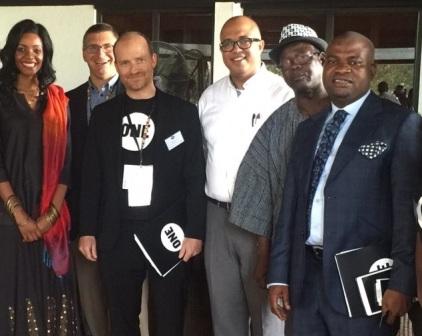Sierra Leone still standing, ready for Global Goals
When the Millennium Development Goals (MDGs) were introduced, in 2000, Sierra Leone had yet to come to the end of a long and destructive civil war. The country was in chaos, but by 2010 signs of recovering started becoming apparent as the country went through the process of rehabilitation, resettlement and restoring the rule of law as part of a seemingly lasting peace.
A 2015 report compiled by the Commonwealth Foundation notes that rapid progress from a very low start can be seen on many aspects of the MDGs in Sierra Leone. The UN Food and Agriculture Organisation (FAO) stated in 2012 that undernourishment in Sierra Leone had decreased significantly in the past two decades.
However, the need for infrastructural, institutional and human capital development remains clear. Sierra Leone is regularly affected by localised disasters such as drought, floods, insect attacks, landslides, bush fires and livestock diseases, fuelling food insecurity and malnutrition.
And as the United Nations (UN) embraced the Global Goals in New York, last week, there have been persistent calls for countries to harness the progress made in the 15 years since the MDGs were rolled out. When it comes to Sierra Leone, the country has never been short of political commitment when it comes to MDGs.
Presenting his government’s MDG progress report for 2010, Sierra Leone president Ernest Koroma noted that the MDGs represent a most determined effort in history to galvanise commitment to a common set of development targets.
“Our people’s aspiration for a better life are very well engraved in these MDGs; and that puts the achievement of these goals at the very heart of our programme for a better Sierra Leone,” he said.
According to Koroma, since his ascendency to the presidency in 2007, he has made achievement of these goals an utmost priority.
“My programme for the socio-economic transformation of my country—the Agenda for Change—fully takes onboard the MDGs. The recent global food and financial crises stalled our progress across some sectors. But our determination to overcome these challenges is unshakeable. We have made a commitment to our people and to the world, and we will stay the course,” he said.
And, owing the country’s success in this front, Sierra Leona received an MDG award for the outstanding leadership, commitment and progress toward achievement of MDG Goal 6 (Combating HIV/AIDS, Malaria and Other Diseases.)
However, in its report of 2015, the United Nations Development Programme (UNDP) notes that, despite significant recent political and socio-economic achievements, Sierra Leone will not meet its targets for the Millennium Development Goals (MDGs) by 2015.
And in its progress report, the Sierra Leone government admits that of the eight MDGs, only one (HIV/Aids, Malaria, TB) will probably be achieved, but only with regards to HIV/Aids. The government admits that Malaria and TB are still a huge problem.
“With sustained effort, an additional three MDGs (child mortality, maternal mortality and development partnership) have the potential for being achieved. Goal 2 (education) is inconclusive due to limited information. The final three (poverty & hunger, gender equality, and environmental sustainability) are unlikely to be met, and most likely will not be met,” the report reads.
UNDP and other UN agencies supported an MDG Needs Assessment which gauged the human resources, infrastructure and finances required in 12 priority areas identified by the government: agriculture, education, gender, health, HIV/AIDS, the environment, transportation, energy, water and sanitation, science, innovation and technology, private sector development and job creation, and public sector management.
The assessment underlined the importance of economic growth, recommending investment in agriculture, mining, fisheries and tourism and the need for a macro-economic framework and growth strategy. The total cost of investment required from 2007 to 2015 was estimated at $19 billion. Almost 60% of this cost is for infrastructure, especially building and maintaining roads.
As a way forward, Commonwealth Foundation organised Civil Society Organisation (CSO) review of progress towards the MDGs in Sierra Leone recommends that the government should explore a range of financial measures to generate further development funds.
This includes reforming taxation policy, for example, regarding taxes on income, property and foreign investments, particularly in extractive industries, and seeking to put in place a financial transactions tax. At the same time, greater attention should be given to domestic debt sustainability and to ensuring that development spending is tracked and published in a transparent way.
The CSOs are also keen to see donors sign up to and deliver on new aid targets, including by providing grants and highly concessional loans. They would also like to see donors assist the government in formulating a freedom of information bill and encourage the government to pass it into law.
The CSOs further recommend that government should actively raise awareness about development plans and establish mechanisms that enable CSOs and the public to participate in discussions on development goals and strategies.
Another recommendation is that CSOs should improve their outreach to the private sector, and encourage parliament to engage more in oversight of development processes.
It is hoped that although the development climate for Sierra Leone remains challenging in many ways, the country will use the next 15 years to focus on what little successes it had with the MDGs if it is to make any significant progress with the Development Goals.
– Ends
Co-founded by Bono, ONE is an international campaigning and advocacy organization of nearly 7 million people taking action to end extreme poverty and preventable disease, particularly in Africa… because the facts show extreme poverty has already been cut by 60% and can be virtually eliminated by 2030, but only if we act with urgency now.
By Nachilala Nkombo – Africa Deputy Director, ONE
Stay with Sierra Express Media, for your trusted place in news!
© 2015, https:. All rights reserved.





